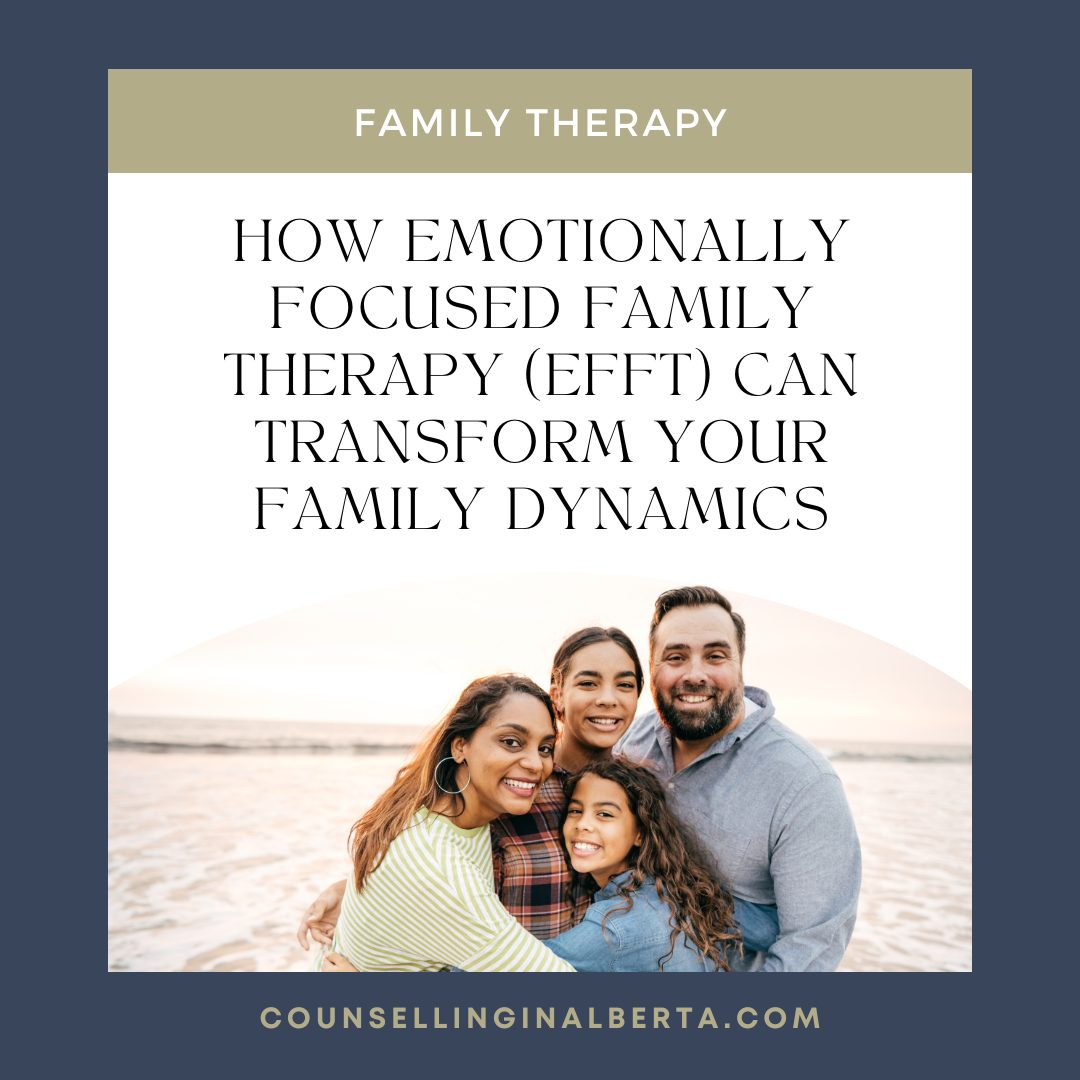How Emotionally Focused Family Therapy (EFFT) Can Transform Your Family Dynamics
No matter how much we love our family members, it can be challenging to like them sometimes. Whether it's communication breakdowns, where everyone talks over each other and does not listen to others, or emotional disconnection that makes you feel highly distant from the people you are closest to, you're not alone in experiencing these challenges in family dynamics.
Understanding the dynamics within your family can help you identify sore spots that need healing. This is where emotionally focused family therapy (EFFT) can help. Emotionally focused family therapy (EFFT) at Williamson & Associates helps family members improve communication, understand why family problems happen, identify and express their emotions, and understand each other's emotional needs and responses.
What is Emotionally Focused Family Therapy?
Emotionally focused family therapy (EFFT) is a therapeutic approach rooted in attachment theory and emotionally focused therapy (EFT). It emphasizes attachment bonds and interaction patterns within families, helping them understand how they relate to each other and why specific interactions trigger emotional distress. This well-structured approach to family counselling includes several steps to improve emotional connections, resolve conflicts, and foster secure attachment bonds.
Key Components of Emotionally Focused Family Therapy (EFFT)
Your emotionally focused family therapy (EFFT) therapist will first help you identify negative cycles of interaction and conflict in your family interactions.
They will help you understand the emotional triggers and attachment needs behind them.
Then, they will guide you to break negative cycles. Understanding the underlying emotions and interactions allows you to start changing how your family relates to each other. It helps you understand each other’s issues without blaming, resulting in positive relationships.
You will then learn to restructure these reactive patterns by constructively expressing your needs and emotions. Instead of bottling up emotions or lashing out, you learn to communicate your feelings and needs in a way that fosters understanding and resolution.
You will build empathy and understanding by learning to see things from each other's perspectives.
This will lead to more positive emotional responses, such as recognizing and validating each other's feelings, which helps to reduce tension and build stronger emotional bonds, ensuring you can manage conflicts and maintain positive connections outside of therapy.
The Science Behind Emotionally Focused Family Therapy (EFFT)
Emotionally Focused Family Therapy (EFFT) is grounded in John Bowlby's attachment theory, which suggests that the way we connect with others is shaped by our early relationships. A child thrives on secure, loving connections with their caregivers. And we have similar attachment needs as adults. Emotionally focused family therapy (EFFT) helps family members recognize and safely share their feelings and needs so that they can build secure attachments with each other.
By addressing patterns of interaction and promoting secure attachments, emotionally focused family therapy (EFFT) creates a supportive environment where family members learn to treat each other with empathy, heal and grow together.
For instance, your adolescent may start skipping school and hanging out with a new group of friends who are a bad influence. Worried and unsure how to handle the situation, you impose strict rules. However, this only leads to more defiance and secrecy from your teen. Or maybe you are trying to navigate the challenges of a blended family, struggling to create a coherent family unit as your children have difficulty adjusting to new step-siblings and step-parents and their different parenting styles, leading to misunderstandings and conflict. Emotionally focused family therapy (EFFT) can facilitate open communication, help you address underlying emotions and attachment needs, and foster empathy and understanding to create a more cohesive and supportive family dynamic.
Dr. Sue Johnson and Dr. Les Greenberg developed EFT in the 1980s to assist couples by concentrating on their emotional connections. Over time, therapists have found that these concepts may also benefit families.
Benefits of Emotionally Focused Family Therapy (EFFT) for Families
Most of us have experienced those situations when a simple disagreement with a sibling, partner, child, or in-law spirals into a full-blown argument. We listen, not to understand, but to respond, impatiently talking over each other instead of really paying attention to what the other person says. We either lash out or withdraw and shut down.
You may be experiencing a difficult time in your marriage, with regular disagreements and silent treatments. Your child may begin to have difficulties sleeping and start worrying that you may divorce. Emotionally focused family therapy (EFFT) can help by improving communication between you and your partner, addressing your child's emotional needs and fears, and fostering a more secure and connected family environment.
Emotionally focused family therapy (EFFT) focuses on changing negative interaction patterns in families that create insecurity between parents, children, and siblings. For instance, when parents are less available and responsive, the family struggles to handle emotional stress. Emotionally focused family therapy (EFFT) helps you reconnect emotionally by addressing and understanding everyone’s feelings and attachment needs. Your emotionally focused family therapy (EFFT) therapist will apply attachment theory to help you understand and manage these emotional challenges, break negative cycles, and strengthen family relationships.
Through emotionally focused family therapy (EFFT), you can resolve conflicts more smoothly and learn how to heal emotional wounds. It's not about quick fixes but about creating lasting, positive changes in how your family interacts. Emotionally focused family therapy (EFFT) can significantly improve your family dynamics, fostering stronger and more open lines of communication, reducing misunderstandings and conflicts, and enhancing empathy and support for each other.
Emotionally focused family therapy (EFFT) enhances the ability to express and listen to each other's emotions.
It helps reduce misunderstandings and conflicts by helping everyone express and better listen to each other's emotions.
Emotionally focused family therapy (EFFT) fosters stronger and more open lines of communication within the family, making resolving long-standing conflicts and emotional wounds easier.
This can lead to greater harmony and cooperation among family members while decreasing overall stress and tension within the family unit.
Emotionally focused family therapy (EFFT) boosts empathy and support for each other, leading to lasting improvements in your family dynamics.
Family Therapy in Olds, Alberta
If you seek to address family issues, reduce conflicts, improve communication, learn how to treat each other with increased empathy, and improve your family's well-being, consider Emotionally focused family therapy (EFFT).
When you're ready to start your journey towards a more connected and supportive family, call us to schedule a consultation with the experienced professionals at Williamson & Associates. They are here to guide you through the EFFT process and support you every step of the way.
See other posts about Family Therapy in Olds, Alberta:
Emotionally Focused Family Therapy (EFFT): Strengthening Sibling Bonds and Relationships
Understanding the Impact of Intergenerational Trauma on Family Dynamics
Managing Conflict in Your Relationship: Tips from EFT Couples Counsellors and Family Therapists
Strengthening Family Bonds: Exploring the Benefits of Family Therapy




